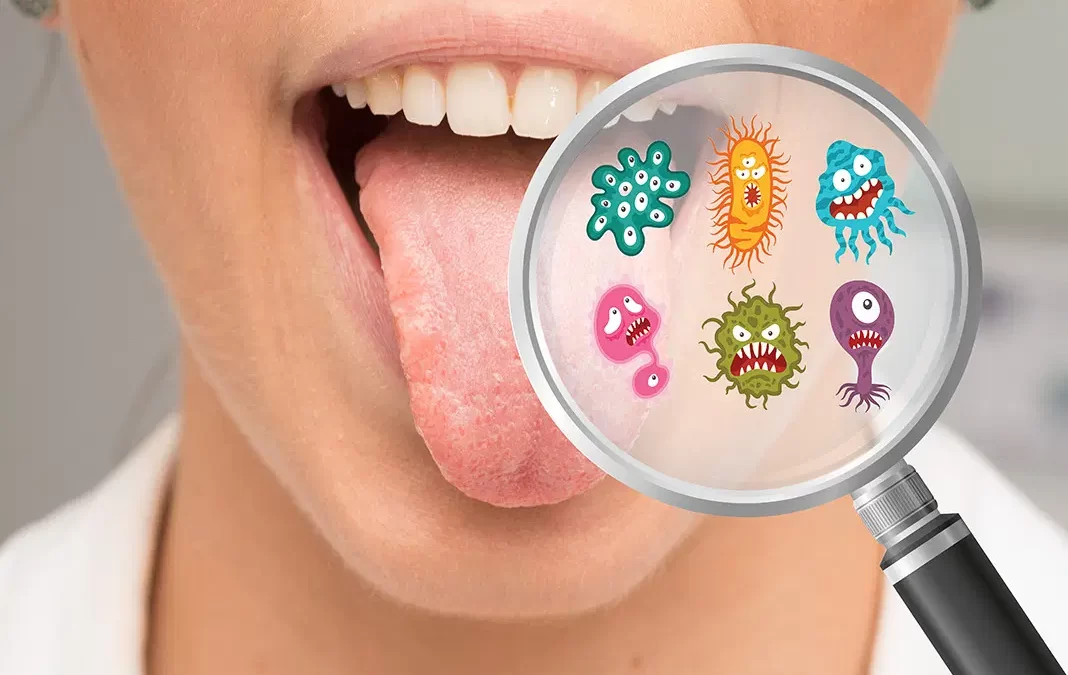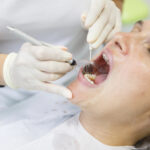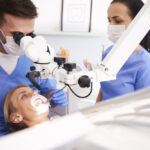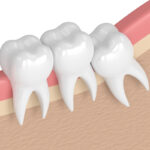Have you ever thought that the bacteria in your mouth could cause damage to your brain? It may sound like a scary concept, but it’s not far from the truth. Oral bacterial infections can lead to serious health complications, including brain abscesses. Knowing how to recognize and treat an abscess is crucial for preventing long-term consequences. In this blog post, we’ll delve into the causes of oral abscesses and their potential impact on your overall health. Whether you’re a parent concerned about your child’s dental hygiene or simply wanting to learn more about dental emergencies and treatments – keep reading!
What is an abscess?
An abscess is a pocket of pus that forms within the body, often as a result of an infection. In dental terms, an abscess can form in the gums or teeth due to bacterial buildup.
The formation of an abscess can cause severe pain and discomfort for those affected by it. It typically leads to swelling and inflammation in the surrounding area, which can affect eating and speaking abilities.
Abscesses can occur anywhere on the body but are particularly common in areas with soft tissue such as around teeth and gums. They are classified into two types: periapical (which occurs at the root tip) and periodontal (which affects gum tissues).
While anyone can develop an abscess, certain factors increase your risk – including poor oral hygiene practices, untreated tooth decay, weakened immune system function, diabetes or smoking.
It’s important to address any signs or symptoms of an abscess right away to prevent further complications from occurring. Treatment options may include draining fluids from the affected area or prescribing antibiotics if necessary.
What causes an abscess?
An abscess is a painful condition that occurs when pus accumulates within tissue due to an infection. Dental abscesses, in particular, occur when bacteria enter the pulp of a tooth through decay or injury and infects the surrounding tissues. This can cause serious pain, swelling, and inflammation.
Poor oral hygiene is a primary cause of dental abscesses. When bacteria accumulate on teeth and gums, they can form plaque buildup which causes cavities. If left untreated, these cavities can penetrate the enamel into the pulp and lead to infections causing abscesses.
In addition to poor oral hygiene, other factors such as cracked teeth or weakened immune systems may also contribute to dental abscess formation. These conditions create openings for bacteria to enter the tooth’s inner structure leading to bacterial growth and eventual development of an abscess.
Oral health experts recommend maintaining proper oral hygiene practices like brushing twice daily with fluoride toothpaste along with regular dental check-ups every six months as preventive measures against developing dental emergencies like an abscessed tooth.
How do you know if you have an abscess?
An abscess is a painful condition that can occur anywhere in the body, including the mouth. If you suspect that you have an abscess in your mouth, it’s important to seek dental treatment as soon as possible. So how do you know if you have an abscess?
The most common symptoms of an oral abscess includes severe toothache and swelling in the affected area. You may also experience pain when chewing or biting down on food, sensitivity to hot or cold temperatures and foul-smelling breath.
In some cases, an abscess may cause fever and general weakness due to infection spreading beyond the affected area. The lymph nodes located under your jawline may become swollen and tender to the touch.
If left untreated, an oral abscess can lead to serious complications such as brain damage or even death from sepsis. Therefore, if you notice any of these symptoms or suspect that you have an oral infection brewing below your teeth this requires immediate treatment for a dental emergency diagnosis and treatment!
How is an abscess treated?
An abscess is a pocket of pus that forms due to an infection. The treatment for an abscess depends on its location, size and severity. A dental abscess can be treated with antibiotics, drainage or root canal therapy.
Antibiotics are prescribed to control the spread of infection and alleviate symptoms such as pain, swelling and fever. However, they cannot completely cure the abscess without additional treatment.
Drainage involves making a small incision in the gum or tooth to allow the pus to drain out. This relieves pressure on the affected area and helps speed up healing time.
Root canal therapy may be necessary if the infection has spread to the pulp (nerve) inside your tooth. During this procedure, your dentist removes infected tissue from inside your tooth before sealing it off with a filling or crown.
In some cases where there is extensive damage or decay of a tooth, extraction may be necessary instead of these treatments. It’s important to seek immediate dental attention if you suspect you have an abscess so that proper diagnosis and treatment can prevent further complications.
Can an abscess cause brain damage?
When it comes to dental emergencies, a brain abscess may not be the first thing that comes to mind. However, research has shown that oral bacteria can travel from an infected tooth to the brain and cause a potentially life-threatening condition known as a brain abscess.
A brain abscess occurs when pus collects in the brain, causing swelling and pressure on surrounding tissues. The symptoms of a brain abscess can vary depending on its location and severity but may include headaches, fever, seizures, confusion or changes in mental status.
If left untreated, a brain abscess can cause permanent damage to the brain or even be fatal. It is essential to seek immediate medical attention if you suspect you have an abscess.
Treatment for a brain abscess typically involves antibiotics and draining the pus from the affected area. In some cases, surgery may also be necessary.
Preventing infections in your mouth through proper dental hygiene practices such as regular brushing and flossing can significantly reduce your risk of developing an abscess that could lead to serious health complications like a brain infection.
Conclusion
Oral bacteria can cause brain abscesses in rare cases and it is important to maintain good oral hygiene practices. Regular dental check-ups and treatments can help prevent the occurrence of abscesses and other dental emergencies. Parents should also prioritize their children’s oral hygiene by teaching them proper brushing techniques from a young age.
If you suspect that you or your child may have an abscess, seek immediate dental treatment. Early diagnosis and treatment can save you from potential complications such as brain damage.
Remember, prevention is always better than cure when it comes to dental health. Take care of your teeth and gums to avoid any unforeseen emergencies that could lead to serious health issues down the line.













